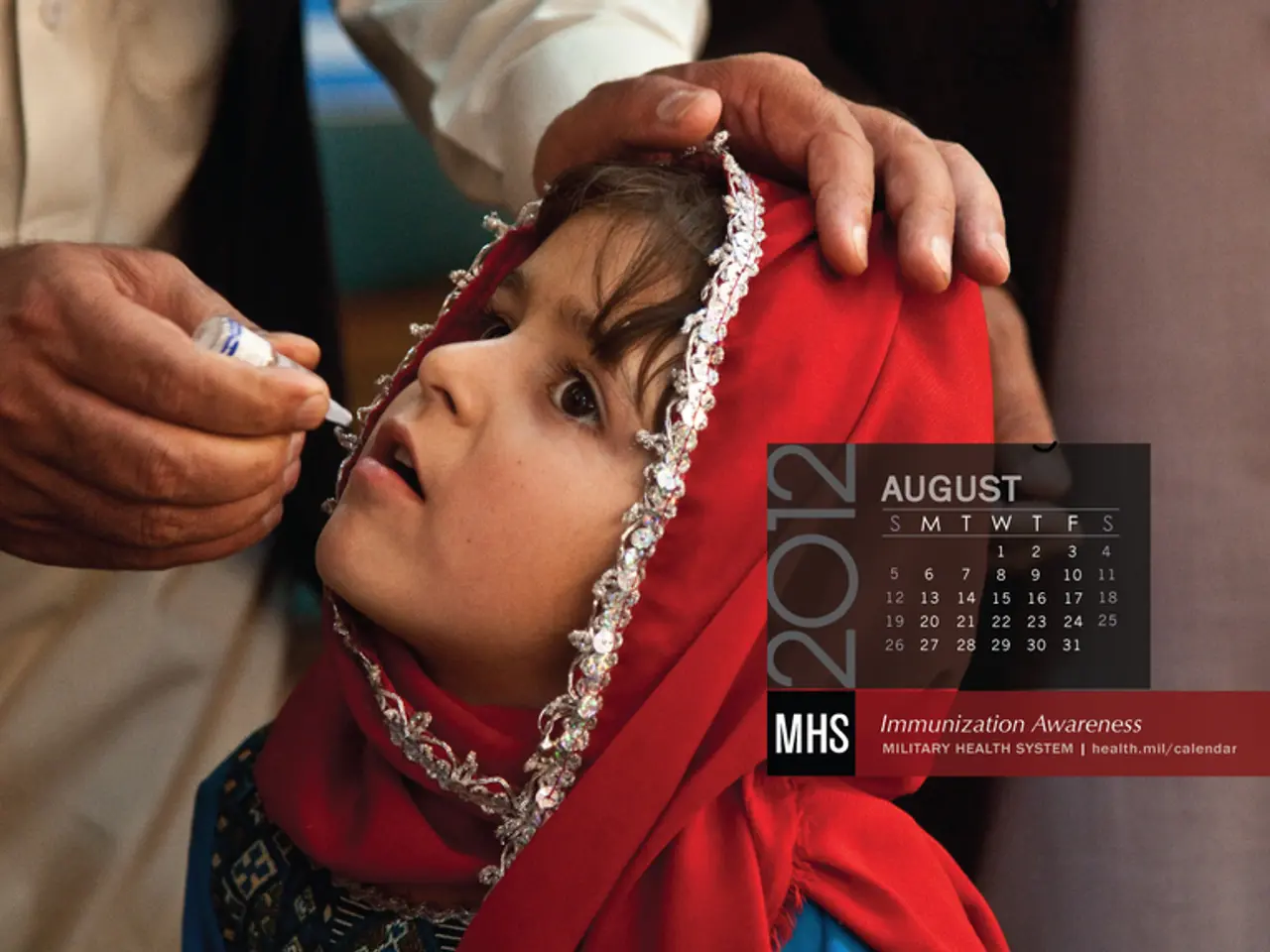Important Immunizations for Newborns in Nigeria
Nigeria's immunization program is a comprehensive initiative aimed at protecting newborns from a range of vaccine-preventable diseases. The program, guided by national policies and international support, provides vaccines against common childhood diseases such as measles, polio, pertussis (whooping cough), tetanus, hepatitis B, diarrheal diseases, malaria, and more [1][5].
Recently, the malaria vaccine was introduced in a four-dose schedule starting at approximately five months of age, with the program aiming to drastically reduce malaria mortality in children under five [5]. The typical vaccination schedule includes a birth dose and subsequent doses of the Hepatitis B vaccine, routine childhood vaccines against measles, polio, pertussis, tetanus, and other preventable diseases, and four doses of the malaria vaccine [1].
However, improving coverage remains a challenge due to socio-cultural, logistical, and infrastructural issues. Vaccine hesitancy, due to misinformation, cultural or religious beliefs, and parental attitudes, leads to notable proportions of children aged 1–5 never receiving recommended vaccines [1]. Logistical issues such as supply chain disruptions, irregular vaccine supply, cold chain failures, and shortages of trained healthcare workers also hinder coverage [1][2]. Accessibility problems, especially in rural and remote areas, and infrastructural gaps in healthcare delivery points are further obstacles [2][4].
Efforts to improve coverage focus on community engagement, health education campaigns, partnerships with NGOs, and leveraging community and healthcare leaders to increase vaccine acceptance and facilitate outreach, especially for Hepatitis B birth dose and malaria vaccines [1][2][5]. Establishing mobile vaccination clinics and outreach programs can help address urban-rural disparities in vaccination access [1].
It is crucial to emphasize the importance of vaccinations for Nigerian newborns. Vaccines play a vital role in protecting infants from potentially life-threatening diseases like polio, measles, and tuberculosis. For instance, the BCG vaccine is administered to prevent tuberculosis in Nigerian newborns, especially in high TB burden countries like Nigeria [3]. The Infant Polio Vaccine (IPV) protects against poliovirus, which causes polio, a highly contagious and potentially paralyzing disease. Nigeria has made tremendous progress in eradicating polio thanks to nationwide vaccination campaigns [6].
Other essential vaccinations for newborns in Nigeria include the measles vaccine and the pentavalent vaccine, which protects against diphtheria, pertussis, tetanus, hepatitis B, and Haemophilus influenzae type b (Hib) [3]. The Hib vaccine protects against Hib-related diseases like pneumonia, meningitis, and bloodstream infections. The rotavirus vaccine prevents rotavirus gastroenteritis, a common cause of diarrhea, and the PCV is recommended to prevent pneumonia, meningitis, and other pneumococcal diseases in Nigerian newborns [3].
In Nigeria, where healthcare resources may be limited, vaccinations are even more important to save lives and reduce illness. Estimated annually, thousands of Nigerian children suffer and die from vaccine-preventable diseases [2]. It is our collective responsibility to prioritize the well-being of our children and ensure they receive the necessary protection through vaccinations. Addressing misinformation, promoting vaccine education, and enhancing trust in healthcare systems can help combat hesitancy and maintain high vaccination rates, which is crucial to prevent the resurgence of polio in Nigeria [1].
References:
[1] World Health Organization. (2021). Nigeria country profile. Retrieved from https://www.who.int/immunization/monitoring_surveillance/data/country_profiles/nigeria.pdf
[2] UNICEF. (2020). Nigeria: Overcoming barriers to vaccination. Retrieved from https://www.unicef.org/nigeria/immunization/63058_125326.html
[3] National Primary Health Care Development Agency (NPHCDA). (2021). Immunization schedule. Retrieved from https://nphcdaportal.com/immunization-schedule
[4] National Agency for Food and Drug Administration and Control (NAFDAC). (2021). Vaccines. Retrieved from https://nafdac.gov.ng/vaccines
[5] World Health Organization. (2021). Nigeria: Malaria vaccines. Retrieved from https://www.who.int/immunization/country_profiles/Nigeria_malaria_vaccines.pdf
[6] World Health Organization. (2021). Polio this week: 29 March 2021 – 4 April 2021. Retrieved from https://polioeradication.org/polio-this-week/29-march-2021-4-april-2021/
Read also:
- Managing Stormwater Efficiently through the Use of Permaculture Planning
- Following a heart attack, a person may be prescribed various medications to manage risks, improve heart function, and prevent further cardiac events. These could include:
- Radiation treatment for cervical cancer via internal means
- Treating hypertension with diuretics is a common method used by medical professionals. Diuretics help the body to remove excess salt and water, lowering blood pressure.








